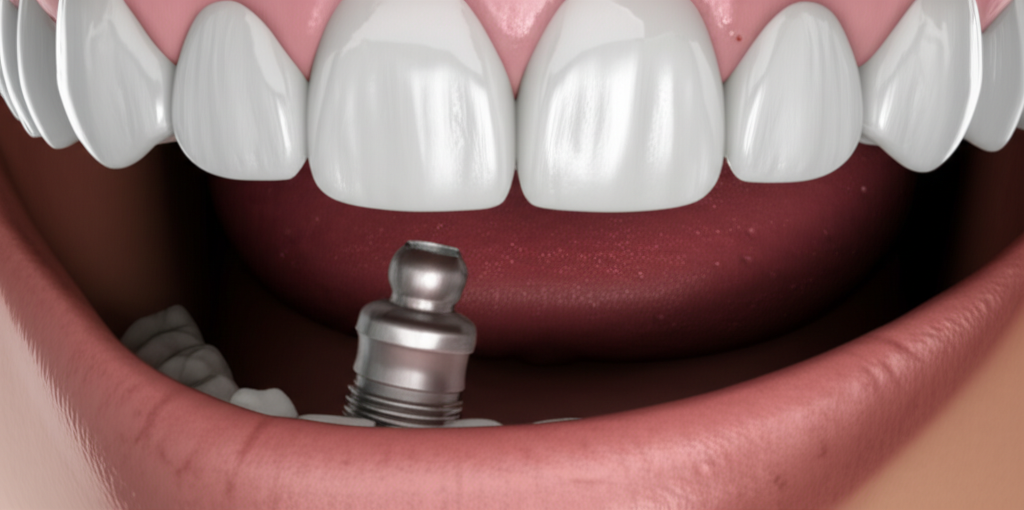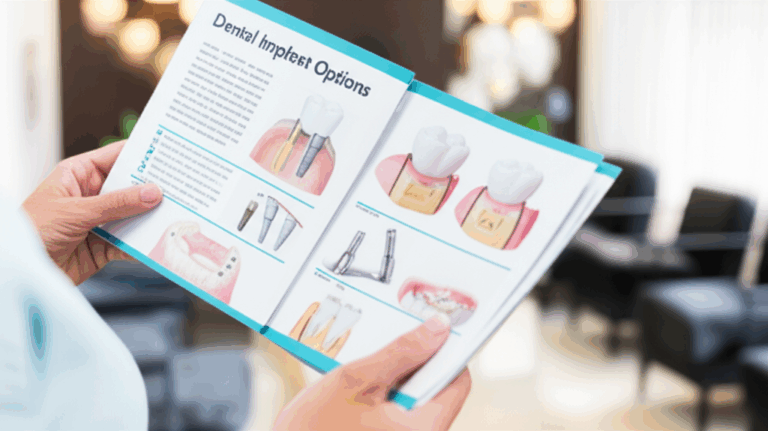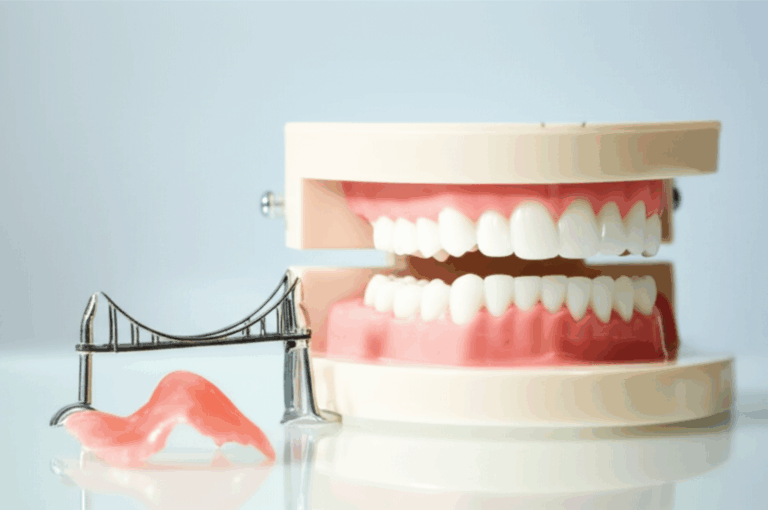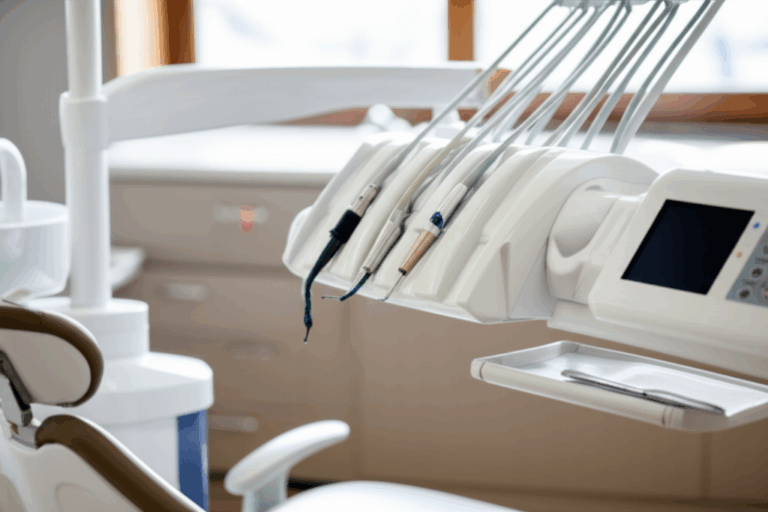
Does a Loose Dental Implant Hurt? Signs, Causes, and Immediate Steps to Take
If you suddenly feel your dental implant is loose, your mind will start racing with questions. Is it supposed to move? Is this pain normal? What should you do about it? In this article, we’ll break down everything you need to know about pain and loose dental implants—what it means, why it happens, and what you should do next. You’ll learn the facts in simple, easy words, so you’ll know exactly how to protect your dental health and your smile investment.
Table of Contents
Why Is This Article Important?
It’s never fun to feel worried about your teeth. Dental implants are supposed to be strong, and lots of people trust them to last for years or even decades. So, when you notice one is loose, you might panic, especially if it hurts. This article gives you clear answers, shares real stories, and helps you take the right steps—fast.
Dental implant problems won’t go away on their own. The good news? With the right info and quick action, you can often keep your smile safe. If you’re worried right now, you’re in the best spot to get help.
What Should You Know About Dental Implants?
Dental implants work like the roots of real teeth. Dentists place a small metal post inside your jawbone. After it heals, this post joins with the bone—a process called osseointegration. Once it’s strong, your dentist adds an abutment and a crown, so it looks and works just like a real tooth.
Let’s look at the main parts:
| Implant Part | What It Does | Problems That Can Happen |
|---|---|---|
| Implant Post | Joins bone, acts as tooth root | Can come loose if bone doesn’t heal well, or if bone loses strength |
| Abutment | Joins post to crown | Screws can get loose, causing movement or clicking |
| Crown | The visible part you chew with | Can crack, break, or come loose if glue fails |
Implant problems can pop up anywhere in this setup. Sometimes it’s just the crown or screw that’s loose. Other times, the post itself wiggles—and that’s more serious.
Does a Loose Dental Implant Always Hurt?
Here’s the first thing people want to know: A loose dental implant often hurts—but not all the time! Sometimes the pain is sharp or throbbing. Other times, it’s a dull ache or even just a “weird feeling” when you chew.
Why does it hurt? Here are some common reasons:
- Infection (Peri-implantitis): When germs attack the bone around the implant, you can get pain, swelling, and even pus.
- Swelling: The body’s way of fighting off infection can also make the area sore.
- Pressure or Nerve Problems: If the implant moves or presses on nerves, it hurts!
- Broken Parts: If a screw or the post itself breaks, pain shows up quickly.
But sometimes, you may feel no pain at all—even if the implant is loose—and that can be even more dangerous.
Why Might a Loose Implant Not Hurt?
It sounds strange but it’s true—sometimes, a loose implant doesn’t hurt at first. Here’s what can happen:
- Loose Crown or Abutment, Not Implant: If the loose part is just on top (the crown or screw), you might just notice movement or a clicking sound.
- Bone Loss Without Nerves Nearby: Bone doesn’t have as many nerves as your gums or teeth, so early bone loss may not hurt.
- High Pain Tolerance: Some people just don’t feel dental pain much.
Warning: Don’t think everything is okay just because it doesn’t hurt! Loose dental implants can cause big problems—pain or no pain.
> Tip: If your implant moves even a bit, or if you hear clicking, call your dentist.
What Are the Warning Signs of a Loose Dental Implant?
You might wonder, “Is my implant really loose, or am I making things up?” Here are the main signs to watch for:
- Movement: If you can move, wiggle, or spin the tooth with your finger or tongue, that’s not normal.
- Clicking or Popping: Hearing sounds when you bite or chew can mean a loose screw or crown.
- Swelling or Redness: The gum around the implant looks puffy or redder than usual.
- Bleeding Gums: If you see blood around the implant, especially when brushing or flossing, that’s not good.
- Bad Taste or Smell: Infection can cause a bad taste or even bad breath.
- Pus or Discharge: Any ooze around your implant means infection and needs fast help!
- Trouble Chewing: Biting on that side hurts or feels off.
- Gap at the Gum Line: The crown seems lifted, or there’s a visible space between it and the gum.
Even if you have just one of these signs, don’t ignore it.
What Causes Dental Implants to Become Loose?
Dental implants get loose for several reasons. Knowing these helps you take better care of your mouth.
Problems With the Upper Parts (Crown or Abutment):
- Loose Abutment Screw: Sometimes the screw holding the crown gets loose. This can make the crown move, but the implant in your bone isn’t the issue.
- Broken or Loose Crown: The visible part can crack, pop off, or shift if the glue wears out.
Problems With the Implant Post:
- Failed Osseointegration: If the jawbone never joined with the implant, it’s not held well.
- Peri-implantitis: An infection eats away the bone around your implant, making it loose and painful.
- Not Enough Bone: Weak bone or bone loss means the post has nothing to hold onto.
- Physical Injury: A sudden hit or accident (like playing sports) can knock it loose quickly.
- Grinding Teeth (Bruxism): Pushing hard on your teeth at night can slowly loosen parts or the implant itself.
- Health Issues: Diabetes, smoking, and some medicines can weaken healing and bone strength.
- Surgical Mistakes: Rare, but sometimes things don’t go right during surgery.
| Cause | Pain? | Emergency? | Treatment Needed |
|---|---|---|---|
| Crown or Abutment | Maybe | Not urgent | Fix, retighten, replace |
| Bone Loss | Likely | Usually | Deep clean, surgery |
| Infection | Yes | Yes | Antibiotics, cleaning |
| Injury/Trauma | Yes/No | Yes | Check, repair |
Why You Shouldn’t Ignore a Loose Dental Implant
This is where things can get really bad.
Ignoring a loose implant lets things get worse—quickly. Even if it doesn’t hurt now, damage happens each time you chew, talk, or brush your teeth. Infection can spread, and bone loss can get so bad your dentist may have to remove the implant entirely.
Remember: Dental implants will not “tighten up on their own.” If something feels wrong, it is wrong. Act now so you have the best chance to save your implant and avoid more pain, problems, and big bills later.
How Will Your Dentist Check a Loose Implant?
When you call or see your dentist for a loose implant, here’s what they usually do:
> Fun Fact: Dental implants usually work really well—up to 98%! But if you do have problems, fast care makes a big difference in saving your smile.
What Are the Treatment Options for a Loose Dental Implant?
Treatment depends on which part is loose, how much damage there is, and your general health.
For Loose Crown or Abutment Screw
- Retighten: Sometimes your dentist can just tighten the abutment screw after taking off the crown. Fast and simple.
- Replace the Crown or Screw: If these break or can’t be fixed, your dentist will swap them out.
- Re-glue the Crown: If glue fails, a new layer can often fix the problem.
For Implant Post, Bone, or Infection Issues
- Deep Cleaning: For simple infection (peri-implant mucositis), your dentist cleans around the implant to get rid of germs.
- Antibiotics: If infection is present, you’ll get medicine to treat it.
- Surgery: If bone loss or infection is bad, you might need surgical cleaning, bone repair, or gum fixes. Sometimes the implant needs to be taken out and replaced later, after healing.
- Night Guard: For teeth grinders, a special mouthpiece protects your implant at night.
Never try to fix a loose implant yourself. Home ideas don’t work. You could make things worse and even risk losing the implant forever.
Can You Save a Loose Implant?
A question many people ask: “Can my loose implant be saved?” Here’s the truth:
- Yes—if you act fast and the problem is mild. For example, crown or screw problems are usually easy to fix.
- Infections can sometimes be treated—with cleaning and medicine. Still, the sooner you fix it, the better.
- If the implant post itself is loose and bone is really damaged, the implant might need to be removed and replaced later.
Getting help early gives you the best chance to keep your implant!
How Can You Prevent Implant Loosening?
A little prevention stops a lot of costly, painful treatments later. Here’s how to keep your implants—and real teeth—safe and strong:
- Great Oral Care: Brush two times daily with soft bristles. Use floss or special brushes for implants.
- Go to the Dentist Regularly: Professional cleanings and X-rays catch problems early.
- Deal With Teeth Grinding: Night guards help stop grinding damage.
- Don’t Smoke: Smoking weakens bone and slows healing.
- Keep Health Conditions Stable: Control diabetes, bone problems, and other health stuff. Tell your dentist about all medicines.
- Follow All Care Tips: Your dental team knows best!
Careful cleaning and regular check-ups also help keep other dental work safe.
When Is a Loose Implant an Emergency?
You might think, “Should I call my dentist now, or just wait?” Some implant problems can’t wait:
Call your dentist right away if you:
- Feel sudden, strong pain.
- See lots of swelling or get a fever.
- Notice pus or a really bad smell from the implant area.
- Can see or feel that the implant has popped out.
These are real emergencies. Acting fast now can stop problems from spreading to other teeth or even your whole body.
Conclusion: What Should You Do Next?
If you remember just one thing about loose dental implants, let it be this: Don’t wait and hope it gets better. Loose implants are not normal, and even if you don’t feel any pain, trouble could be starting below the surface.
Call your dentist or oral surgeon as soon as you notice movement, pain, or signs of infection. The faster you get help, the better your chances are to fix the problem and save your implant—and your smile.
If you need top-quality crowns, bridges, or implant work, it’s important to go with a trusted lab. Choosing a professional china dental lab adds another layer of safety and skill to your dental care.
Summary: Key Things to Remember
- A loose dental implant is a strong warning—don’t ignore it.
- Pain is common, but not always there. Swelling, bleeding, bad taste, or crown movement are warnings.
- Call your dentist quickly if you spot a problem.
- Most loose crowns or screws are easily fixed if caught early.
- Bone or infection issues may need surgery or removal of the implant.
- Good cleaning, regular check-ups, and no smoking help avoid most problems.
- Quick treatment means a better chance to save your implant, your health, and your smile.
If you want more info on other dental issues, see dental problems for help.
References








